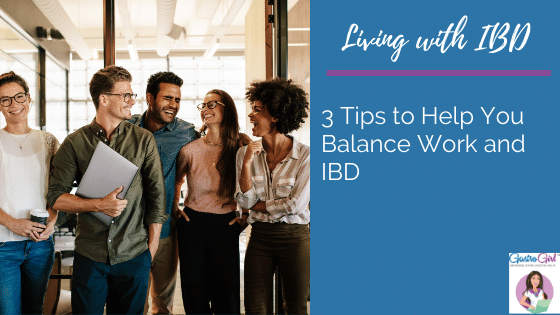IBD Patients and COVID-19: What They Need to Know and Tips for Managing Stress
Sara N. Horst, M.D., M.P.H, Vanderbilt University Medical Center, provided the following insight for IBD patients and their caregivers. Dr. Horst is a gastroenterologist who specializes in the care of inflammatory bowel disease, including Crohn’s disease and ulcerative colitis. She is interested in psychosocial outcomes in patients with inflammatory bowel disease, particularly in depression. She is also interested in nutritional deficiencies related to inflammatory bowel disease.
What should our patients with IBD consider in the COVID pandemic?
Many patients with inflammatory bowel disease are on medications that alter their immune system. Therefore, we are recommending you to be careful and follow guidelines for social distancing, hand washing, and wearing a mass.. Some of the medications may have different risk for complications than others. For instance, available data has shown that prednisone puts patients who get COVID at increased risk for severe complications. Therefore, if you are on this medication, you may need additional protections and should discuss with your physician.
Interestingly, the available data we have now (and this may change on a week by week basis), does not show that patients with IBD have any HIGHER risk of getting COVID than others in their similar age/risk group. Also, many of the medications used in IBD, such as anti-tumor necrosis factor therapy or other biologics, may NOT have impart any increased risk of getting COVID or having bad complications from COVID if you are infected. This is great news and very reassuring. Obviously, this could change as we learn more every day!
 Sara N. Horst, MD, MPH
Sara N. Horst, MD, MPH What is the relationship between stress and IBD? Could stress surrounding concerns for COVID trigger a flare?
We know that mental health is extremely important for patients with inflammatory bowel disease. Studies have shown that patients with IBD are at increased risk for mental health issues such as depression and anxiety. Also, data shows that if patients have mental health diagnoses and IBD, they are at increased risk of disease flare, surgeries, emergency department visits, non-adherence to their medication, and increased health care costs.
Stress can worsen underlying mental health issues. Therefore, I would absolutely want patients with IBD to pay attention to what is happening to their mental health and stress levels in these extraordinary times. We are all dealing with immense changes in how we live, work, and interact with others. Therefore, it is extremely important for patients with IBD to understand that caring for their mental health is paramount to keeping their physical health in line.
How can patients manage stress?
More and more studies are showing that psychological therapies can help patients with IBD manage stress and mental health. Also, certain medications used to help in depression and anxiety may have potential benefit for patients with IBD and co-existing mental health conditions. Therefore, myself and other IBD experts have been advocating for greater attention to be paid to caring for the “whole patient”, not just their gut. This includes discussing mental health with our patients, and trying to make more services available to help if they are at risk. For example, our IBD clinic, we have a social worker and a psychologist who sees our patients, and many other clinics and hospital systems around the country are trying to help our patients get better access to mental health services with “patient-centered medical home” models.
Specifically in the area of the COVID pandemic, I think if patients with IBD are worried about their COVID-19 risk, they should definitely talk to their doctor. This will help them understand if their medications put them any higher risk than the general population. I hope we all continue to listen to the medical community who are advocating for not only IBD patients on immunosuppression but for everyone at risk. Social distancing and wearing a mask as possible is a small but meaningful thing to do. I hope we as a society can remember that we are not just trying to protect ourselves but also all of those around us, who may have differing risk levels of complications from the virus.
Suggested Resources
Listen to our
latest Podcast!








